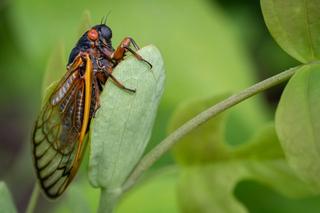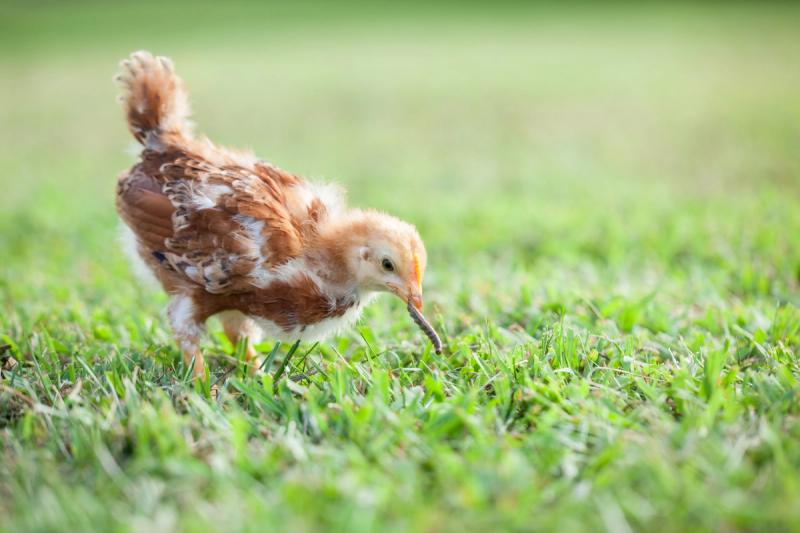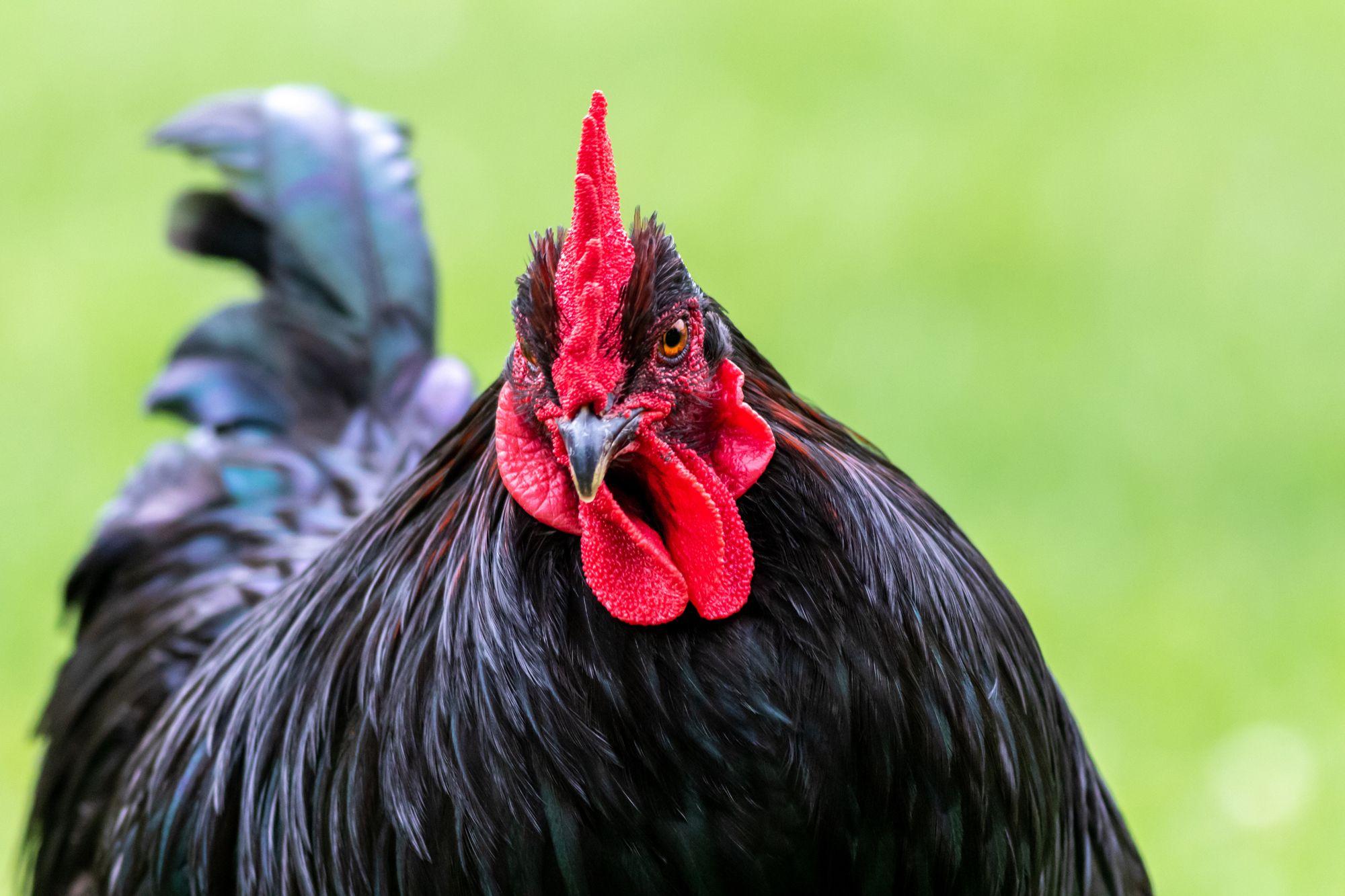Preparing Your Chickens for the 2024 Cicada Invasion
How the Cicada Emergence Benefits Your Flock


Chickens are opportunistic and eat a lot of bugs. They devour whatever they can! These little dinosaurs are natural omnivores. Some chickens will eat a snake, while others chase them around the yard, hoping for a bite. Others eat mice and spiders, and this spring, if they’re lucky and in a cicada hot spot, they’ll be eating thousands of these harmless insects. This bug emergence guarantees that wildlife and chickens will have full tummies this spring.
PJ Liesch, the bug guy and Extension Entomologist at the UW-Madison Department of Entomology, told Chicken Whisperer Magazine that two different broods of cicadas (brood 13 are 17-year cicadas, and brood 19 are 13-year cicadas) are emerging simultaneously this spring. This will be an event that hasn’t occurred since 1803 when Thomas Jefferson was president. There will be isolated pockets. Cicadas feed on the roots of trees as juveniles, and trillions will emerge if you’re in a hot spot. Northern Illinois and Wisconsin are both hot spots for brood 13. Brood 19 is in the southern half of Illinois and across the south.
The emergence of cicada nymphs is tied to the temperature of the soil at a depth of eight inches and decent rainfall. Typically, they emerge when the soil temperature reaches around 64 F.
Will Trillions of Cicadas Stress Out Your Chickens?
Nope! They are non-toxic, defenseless and clumsy. “They emerge, and it’s a free buffet for wildlife. The benefits outweigh the negatives; animals can feed on these and readily gorge themselves on cicadas. Wildlife populations in these hot spots do a little better in the immediate future. It’s free accessible food,” Liesch told Chicken Whisperer Magazine.
Also, cicadas will not lay eggs on your hens. They only lay eggs on woody plants, shrubs, grape vines and trees. Thankfully, you don’t have to worry about checking your chicken for hundreds of cicada eggs!
Free fertilizer for all.
A reason for the sheer numbers is considered a survival strategy for cicadas. “If you come out every year in low numbers, this impacts your ability to reproduce. If you’re a large insect and noisy, that could be easy for vertebrates to find out. Yet, in massive numbers, their predators will get a full tummy and won’t eat all of them. So, they can safely lay and survive,” Liesch said. Trillions of exoskeletons left behind will litter the ground with an odor as they break down. The shells might as well be candy for your chickens.

Cicadas Are Loud and Look Prehistoric
The noise level of these bugs is reason enough to drive to a hotspot. If you’re close to the bugs, the noise level in decibels is close to 100 dB. Any noise exceeding 70 dB is typically considered disturbing to humans. However, your chickens will likely get used to the noise.
Worldwide, there are 3,000 different species of cicadas. “The cicadas we��’re going to see are called periodical cicadas. There are seven and all look similar. About an inch long with black bodies and distinct red eyes,” Liesch said.
What stands out to Liesch about this event? “It’s just like having a solar eclipse. You may only have a handful of opportunities to see this type of event if you live in a hot spot. I’ve never seen these with my own eyes. At age 39, this is my first opportunity to see these in Wisconsin. I may only have three or four more opportunities in my lifetime,” Leisch said.
Like the recent solar eclipse, this is a once-in-a-lifetime event. If you’re lucky enough to be in a region where the cicadas are emerging, take many pictures of your chickens eating these insects and share them on our social media channels!
Cicada safari is a popular app that community scientists use to help entomologists nationwide this spring.
Tags:Hot Topics

Chicken Whisperer is part of the Catalyst Communications Network publication family.











